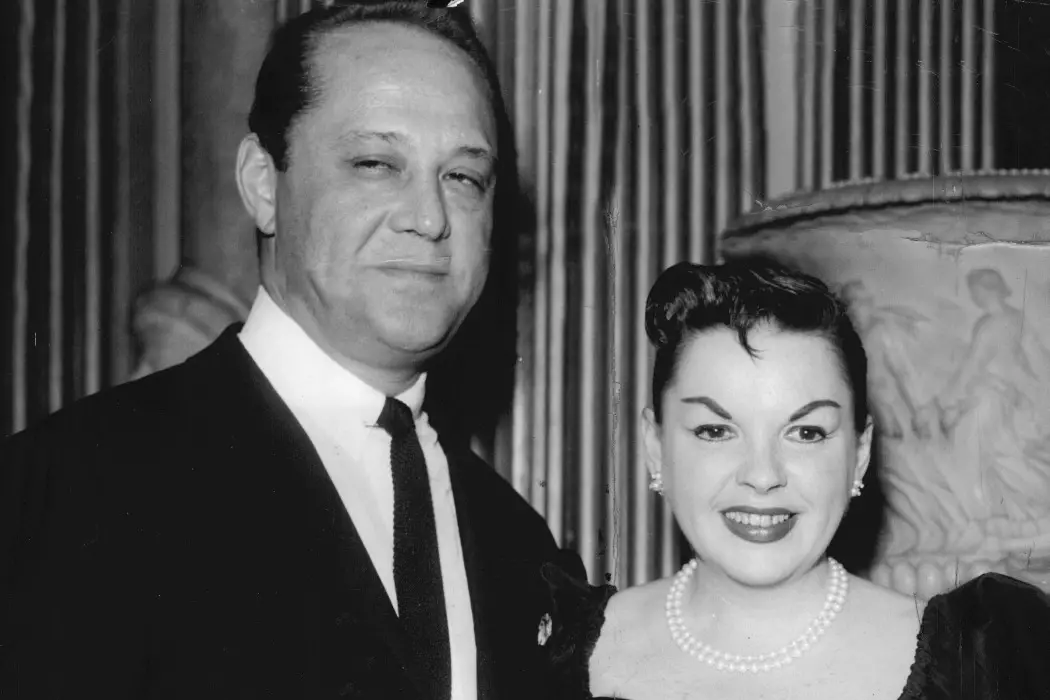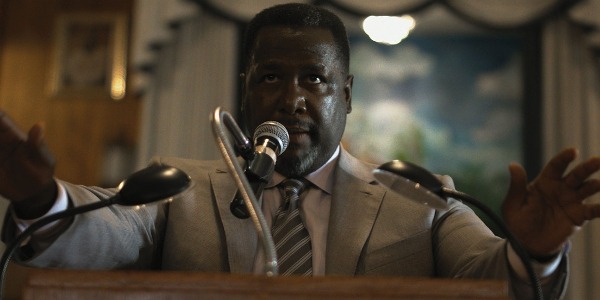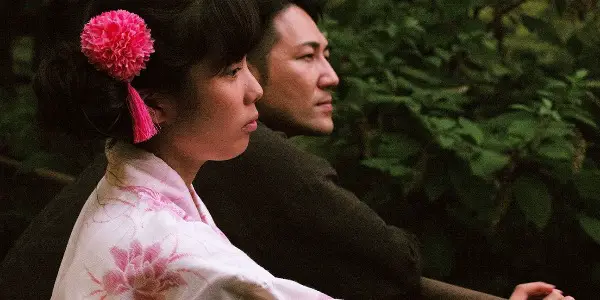BFI London Film Festival 2019, Part II: Jaw Dropping Docs & Narrative Disappointments

Alistair is a 25 year old writer based in Cambridge.…
This year’s London Film Festival kicks off this week with a bang, as UK premieres of major titles including The Personal History of David Copperfield, Waves and The King are all set to get audiences talking in the first couple of days. The Film Inquiry team will be diving in to some of the bigger titles in future posts, as well as interviewing some of the filmmakers behind them (!), but first, here’s our second feature on some of the films we managed to see prior to kick off.
Adolescentes (Sebastien Lifshitz)
Maria Lattila: Sebastien Lifshitz’s documentary Adolescentes is an organically captured documentary about growing up and becoming your own person, finding your way and moving on.
We first meet Emma and Anais when they’re 13. Emma is a gifted singer and wants to pursue a career in singing or dancing, but her mother wants her to focus on school. Anais struggles in school and rebels against her mother who wants her to lose weight. The two girls despair over boys and test results in equal measure for 5 tumultuous years during the film, until they move on from their teenage years and each other.

Lifshitz’s film is a fascinating look into contemporary France and the lives of two women. It’s at the same time universal in its portrayals of growing pains, specifically from a female point of view, but it’s also a close look at the transformative teenage years of two individuals. Emma and Anais are irritating, loving, interesting and foolish in equal measure and their stories don’t necessarily take the direction the viewer might assume, making the documentary lifelike and authentic. It doesn’t seem to drive any sort of agenda or narrative, Lifshitz is more interested in pure observation, trusting life to be interesting enough on its own.
What’s more hit and miss is the news footage of France’s recent terror attacks, first the Charlie Hebdo offices and later the concert hall Bataclan. While they help paint the picture of a more torn France, they don’t add much to the stories of the young women. After the Charlie Hebdo attacks, Anais furiously defends Muslims but the scene feels separate and doesn’t have the emotional effect it should. A much more interesting scene comes later in the film after Emmanuel Macron is elected president and Emma is happy enough but Anais watches on frustrated, stating that Macron works only for the rich. Lifshitz’s film is often at its best when demonstrating the class and socio-economic differences between the girls.
The film’s ending feels bittersweet, but the film overall is a bit of a trek. The exhausting 2+ hour runtime is too much, but it’s undeniably rewarding to see both girls find their way, then lose it just to find it again. Adolescentes offers a beautiful and accurate slice of life from a female point of view.
Burning Cane (Phillip Youmans)
Alistair Ryder: At 19 years old, director Phillip Youmans became the youngest filmmaker to not only win a prize at the Tribecca Film Festival, but to have a film play at the festival altogether. For any director to achieve this with their first film is an impressive achievement – but to do it so quickly after finishing graduation, while peers are still working out what to do for a career, is in another league altogether.

Unfortunately, this is the sheer extent to my praise of Burning Cane, a semi-intriguing but considerably underwritten character study derailed entirely by Youmans’ student film aesthetics. The writer/director aims to look at a Louisiana woman’s crisis of faith, as she contends with an alcoholic preacher (the ever brilliant Wendell Pierce) and a son who is irresponsible in caring for her grandchild. The theme of cyclical toxic masculinity, and how behavioural traits are passed down between generations, is constantly hovering on the margins, but treated as an afterthought in a film where these character studies are too understated to properly register.
But, at least with the solid performances from the core ensemble cast, a director who was 17 at the time of filming could at least be forgiven for not properly grappling with the weighty themes he tasked himself with. What is inexcusable is the very teenage trait of self conscious artiness for the sake of artiness; torturous long takes that add no depth (do we really need to see a character sat in a dark room watching The Jungle Book for two minutes?), combined with ugly handheld camerawork reminiscent of a first year film student project. Time will only tell if Youmans matures into a more accomplished filmmaker, but based on the evidence provided in Burning Cane, I can’t quite determine what potential others are seeing in this debut. It wouldn’t achieve a passing grade if submitted as a thesis film, so why on earth is it becoming a must see fixture on the festival circuit?
Family Romance LLC (Werner Herzog)
Maria Lattila: Werner Herzog’s latest film is a strange one; a scripted and acted “documentary” about a company which offers rent-a-relative services for whatever your needs. In the centre of Herzog’s film is the story of 12-year-old girl Mahiro, who we find nervously pacing past the same man at the beginning of the film. The man is Ishii Yuichi (playing himself) who, without Mahiro’s knowledge, has been hired by Mahiro’s mother to impersonate the girl’s estranged father. The two meet and spend the day together and begin to build a relationship.

The film, while not a documentary, feels and looks like one. It’s shot purposely in a manner that if you went in blind, you would mistake the film for a serious documentary, but it’s also so bizarre and at times scripted that it feels off. It’s weird enough to justify its place in Herzog’s filmography, but it feels overlong and stretched. There isn’t quite enough meat around Family Romance LLC’s bones, but Herzog surprisingly finds moments of truth and beauty within the narrative. It’s a shame these moments are too few and far apart.
The film is at its best when it leans heavily into its own weirdness. A delightful scene in a hotel operated by robots is equally disturbing and funny and towards the end Ishii shops for a casket for himself, resulting in much hilarity. Strangely, we’re offered glimpses of other jobs and services the company provides, including someone who hopes to find fame by hiring plenty of fake paparazzi to follow her and another man is hired to play the role of a husband and father during a wedding when the real father is revealed to be too drunk to be present at the wedding. The film lovingly shows how much preparation goes into the job and how seriously the employees take their job.
Ultimately, the film doesn’t quite manage to explore its own themes in a satisfying way. Despite a haunting last scene, the film lacks teeth and hunger and it’s hard to relate to anyone or anything on screen. For hardcore Herzog fans, Family Romance LLC is a must-see, but others might want to skip this oddity.
A Pleasure, Comrades! (José Filipe Costa)
Paddy Wilson: José Filipe Costa‘s A Pleasure, Comrades is interested in contradictions. Using older non-professional actors playing young radicals, it shows us the simple lives and conservative mores at play within a revolutionary workers’ cooperative after Portugal’s Carnation Revolution of April 1974, which overthrew the ‘Estado Novo’ dictatorship. And though the film is screening in the documentary competition here at LFF, it lies somewhere between fact and fiction. There are actors, scenes, improvisation and dramatization. It is a ‘theatre of memory in the present’, as Costa describes it.

In this theatre of memory, no attempt is made to recreate the time period in clothing, décor or music. Costa is disinterested in making 60 and 70-year-olds look the ages of the characters they are playing. As welcome and interesting a device this is, it makes less of a comment on memory and time that it perhaps wants to. It blurs the distinction between the past and present, raising questions of youth and age, naiveté and wisdom, but fails to develop on this theme once the blurring occurs, trusting that these questions are raised in the audience’s mind by the anachronisms alone.
But it is this blurring that Costa is interested in: the repressed puritanism of the gender relations within the revolutionary workers’ cooperative; the women’s prudish sexuality, the men’s toxic traditionalism against a backdrop of revolution. Costa shows these cultural clashes through the eyes of foreigners – ‘comrades from the north’ – who enter the cooperative with the same strand of idealism and hopefulness of the International Brigades in Spanish Civil War. This contradiction is reflected in the calm, naturalistic scenes – rubbing feet, washing dishes – juxtaposed with the heavily soundtracked, sexual dream-like scenes in a way that makes sense with the subject matter and never feels jarring.
Bob Dylan said that ‘Passion is a young man’s game. Older people gotta be wise.’ In A Pleasure, Comrades the old, standing in for the young, both carry forward and resist the passion of revolution: embracing societal while resisting personal and sexual. But it’s not the images of revolution that stay with me; instead it’s those of simpler scenes where Costa really succeeds: a goat giving birth, the farm being tended to, the men pulling the women in too close. Maybe that’s the point: simple scenes, in the grasp of dictatorship, become revolutionary acts. The point, however, could have been a little sharper.
Sid and Judy (Stephen Kijak)
Musanna Ahmed: Between the highly anticipated biopic Judy and this new Showtime documentary film, Sid & Judy, Ms. Garland may be having a moment. The tragic arc of this rich cultural icon will always be important, particularly when the exploitation of vulnerable women continues in the entertainment industry today – it’s disturbing to know that Harvey Weinstein was once set to make a film on the Wizard of Oz star too.
Sid & Judy offers a fresh perspective, focusing on the viewpoint of Sid Luft, her manager and third husband who wrote the autobiography Judy and I: My Life with Judy Garland, which serves as a basis for filmmaker Stephen Kijak. Luft’s memoirs are translated into an illuminating chapter in the Judy cinematic canon.
Reading elsewhere, you’ll learn that Luft was accused of drunkenness and abuse as a reason for their divorce but he lets himself off the hook here (and, in turn, so does Kijak). But during their brighter days together – of which there were many, as the lovely archive footage shows – he’s presented as one of the figures Judy genuinely counted on in her life, including as the facilitator of her comeback vehicle A Star is Born. That film didn’t have a happy ending, losing money and killing the potential of more collaborations between the couple and Warner Bros, but we experience the sheer happiness of when, subsequent to the film’s release, their son was born.
Sometimes, Luft’s journal reads like he’s transcribing Garland’s life for Wikipedia, making the film feel a bit basic and straightforward, but he includes personal conversations with his then-wife, allowing us to be privy into her emotions through her late career and effectively reconsidering the visuals presented to us. These entail rare concert footage, sweet home video clippings and enough starry images to keep a Classic Hollywood Instagram page going for a while.
For anyone with even a tenuous interest in the Judy Garland story, this doc is definitely worth your time. In addition to having an inherently compelling story and an original perspective, the greatest strength of Sid & Judy is the excellent vocal performance of Jon Hamm as Sid Luft, flexing his platinum larynx with an appealing film noir timbre to recite excerpts from the subject’s book for narration. Ditto Jennifer Jason Leigh, who fills in for Judy Garland, comfortably stepping up to the plate to capture the essence of the legend with just her voice.
Stay tuned to Film Inquiry for more reviews from London Film Festival, with our takes on The Personal History of David Copperfield, Saint Maud, Synchronic and more in our next dispatch!
Does content like this matter to you?
Become a Member and support film journalism. Unlock access to all of Film Inquiry`s great articles. Join a community of like-minded readers who are passionate about cinema - get access to our private members Network, give back to independent filmmakers, and more.
Alistair is a 25 year old writer based in Cambridge. He has been writing about film since the start of 2014, and in addition to Film Inquiry, regularly contributes to Gay Essential and The Digital Fix, with additional bylines in Film Stories, the BFI and Vague Visages. Because of his work for Film Inquiry, he is a recognised member of GALECA, the Gay & Lesbian Entertainment Critics' Association.













